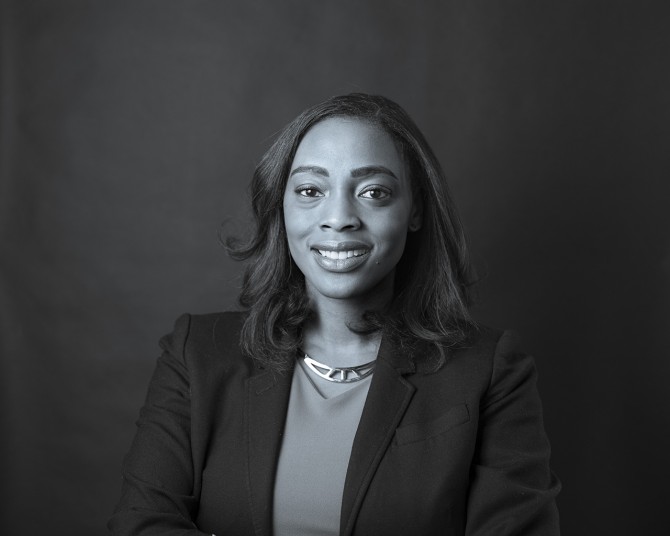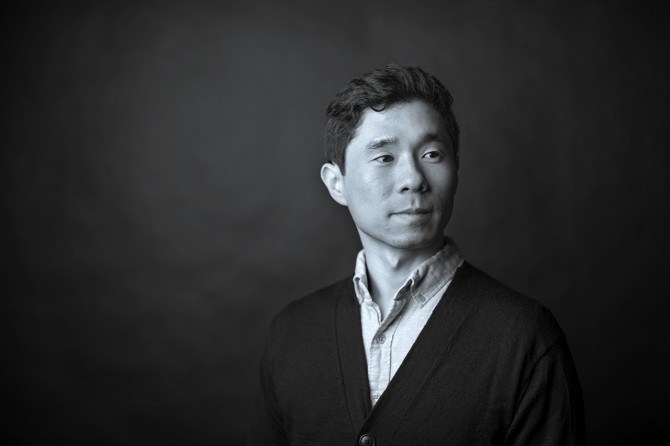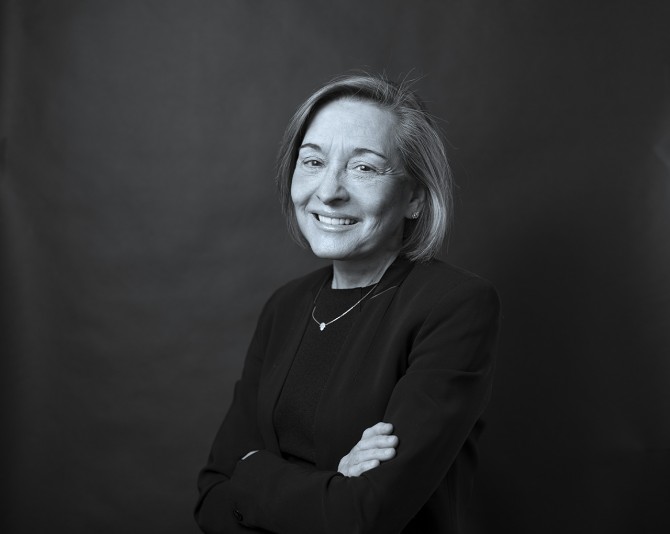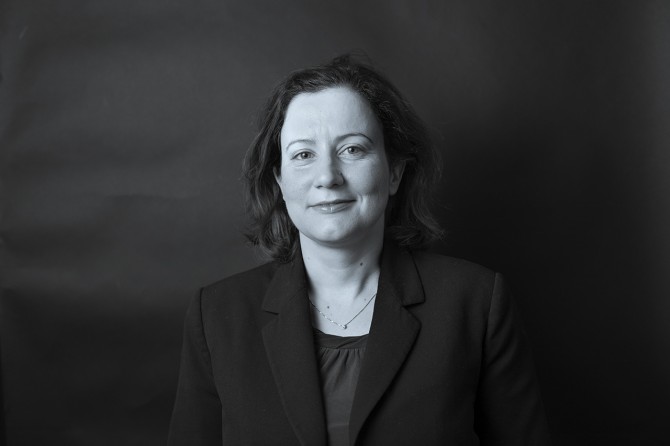Faculty Spotlights
Tashara Leak: Targeting health disparities among urban youth
As a health disparities researcher, Tashara Leak, the Lois and Mel Tukman Endowed Assistant Professor within the Division of Nutritional Sciences, conducts interventions that address socioeconomic and environmental influences on food choices while drawing upon expertise in mixed methods and community-based research.
Leak says that because racial minorities and individuals from lower socioeconomic backgrounds experience higher rates of obesity and type 2 diabetes compared to their non-Hispanic White and higher socioeconomic status counterparts, “chronic disease prevention needs to occur during childhood and adolescence.”
“Concentrating on this, my research addresses environmental barriers, such as limited availability and accessibility of healthy foods, and we identify innovative ways to encourage youth to make healthy dietary choices,” Leak says.
Leak joined Cornell University’s College of Human Ecology in July 2017, arriving with a grant from the Duke-UNC U.S. Department of Agriculture Center for Behavioral Economics and Healthy Food Choice Research.
“The Division of Nutritional Sciences is internationally recognized as a leader in the field of nutrition,” she says. “As an urban researcher, I was enthusiastic about conducting studies in New York City in collaboration with Weill Cornell Medicine and Cornell University Cooperative Extension-NYC, which is in alignment with the ‘One Cornell’ initiative that expands the university’s urban footprint.”
Given Leak’s commitment to addressing health disparities among youth in urban communities, upon her arrival she and a small team of dedicated students began building relationships with CUCE-NYC, Weill Cornell and community partners to conduct research that investigates the intersection of adolescence, poverty, diet and health.
She quickly developed a study in partnership with City Harvest in NYC, which examines whether New York City youth who shop at corner stores are interested in purchasing healthy grab-and-go snacks.
Further, Leak is currently developing a 4-H afterschool club called the Advanced Cooking Education (ACE) Program, aimed at improving dietary behaviors and health outcomes for eighth-graders in marginalized communities and providing them with valuable skills in and out of the kitchen.
These demonstrations of engaged scientific approaches highlight Leak’s commitment to impacting the health of minority youth from disadvantaged communities.
“The goal of all of my projects is to inform a program or policy,” she says. “I feel as a researcher that it’s our job not just to study problems, but to solve them.”
– Stephen D’Angelo
Brian Lucas: Studying motivation in and out of the workplace
Brian Lucas, assistant professor of organizational behavior at the ILR School, wants to help people be the best possible version of themselves.
Lucas studies how individuals understand and navigate their environments, both in and outside of the workplace. His specific areas of focus are creativity and morality – “domains where people are always trying to do a bit better,” he says.
Currently, as recipients of an ILR School Theme Project grant, he and Ph.D. student Lillien Ellis are researching the use of experience-sampling technology to increase creativity in the workplace. And, with Kaitlin Woolley, assistant professor of marketing at the Cornell SC Johnson College of Business, he is studying motivation in the workplace.
Lucas, whose training is in experimental social psychology, joined the ILR School in the fall of 2017, drawn by what he describes as Cornell’s “vibrant research community and its enthusiastic support for young academic researchers.” He values Cornell’s “collaborative atmosphere, which promotes the cross-pollination of ideas among social scientists across campus.”
He teaches three classes: Introduction to Organizational Behavior, Managing for Creativity, and Leading and Managing Teams. “In the classroom, I like to use concepts and theories to inform real-world problems – the day-to-day issues that one might face in an organization,” he says. “Although they’re theory-driven, my classes are practice-focused.”
In 2016, Lucas won the Best Theoretical or Empirical Paper Award from the Conflict Management Division of the Academy of Management for a research project that explored the relationship between egalitarianism and empathy. The paper, co-authored with Nour Kteily of Northwestern University’s Kellogg School of Management, appeared in the May 2018 issue of the Journal of Personality and Social Psychology.
Also published last year were papers on how people’s pursuit of money affects the way they see themselves (Organizational Behavior and Human Decision Processes, November 2018); how to manage the consequences of word-deed misalignment – i.e., saying one thing but doing another (Research in Organizational Behavior, 2018); and how leaders can create more effective vision statements (Academy of Management Journal, December 2018).
Previously, Lucas was an adjunct assistant professor and postdoctoral research professional at the University of Chicago’s Booth School of Business. He earned his doctorate from Northwestern, where he explored his own creativity – playing guitar in a rock cover band.
– Sandi Mulconry
Virginia Pascual: A passion for pediatric research
Dr. Virginia Pascual always found working with patients gratifying. As a pediatric rheumatologist, she often encounters young kids with bright futures but who are grappling with problems with their immune systems.
“I cannot imagine working with any other type of patient,” says Pascual, who in 2017 was appointed the Drukier Director of the Gale and Ira Drukier Institute for Children’s Health at Weill Cornell Medicine. “The immune system is at the center of so many childhood diseases, from asthma to infections and autoimmunity. And because many of these diseases are chronic, we follow the kids through childhood and adolescence … Current research is bringing life-changing treatments for many of these conditions, but there is still a lot to do.”
As director of the Drukier Institute, Pascual has the opportunity to better understand the underlying molecular causes of pediatric diseases, with the hope that these findings can translate into new treatments and therapies.
Pascual, who also is the Ronay Menschel Professor of Pediatrics, says that she is interacting with different groups within Weill Cornell Medicine’s Department of Pediatrics, and they are “all working toward cross-fertilizing different fields, sharing technologies and approaches that will ultimately make us all advance faster.” Recently, her research has led to the discovery of a unique type of white blood cell that contributes to lupus, and she is hopeful that this finding will result in new treatments.
Pascual has found great joy in pairing her clinical care with basic research – a realization that was serendipitous. After graduating from medical school in Spain, Pascual went to the University of Texas Southwestern Medical Center for a one-year clinical fellowship and found herself in an immunology laboratory for the first time.
“I quickly discovered how amazing the scientific experience was,” she says. “It was there that I recognized that understanding immunology was key to understanding inflammatory diseases.” Pascual then decided to re-train in pediatric rheumatology and eventually became the director of pediatric rheumatology at UT Southwestern.
Pascual was drawn to Weill Cornell Medicine by the opportunity to accelerate discoveries in pediatric research. Thanks to key partnerships with Weill Cornell Medicine, NewYork-Presbyterian and Hospital for Special Surgery’s pediatric clinical care programs, new developments in research at the Drukier Institute are put on the fast track to be applied to patient therapies.
“There is an incredible number of children who are going to be served here,” Pascual says. “I dream of establishing cohorts of patients who are going to be followed very closely. Not only in the clinic, but in the lab, where we can track their immune systems in real time with state-of-the-art technology.
“The goal is not only diagnose and treat, but one day predict and intervene before symptoms appear.”
– Molly Schulson
Margarita Tsoutsoura: Exploring challenges faced by family-owned businesses
Family-owned businesses dominate the economic landscape in the United States: Between 70 and 90 percent of all firms in America are owned or controlled by families. They generate 62 percent of the country’s employment and 78 percent of all job creation, recent data show.
Yet these companies, from startups to established corporations, are little understood, because they are private and not public. Associate professor Margarita Tsoutsoura, the John and Dyan Smith Professor of Management and Family Business at the Samuel Curtis Johnson Graduate School of Management in the Cornell SC Johnson College of Business, is shedding light on this understudied world.
In 2017, Tsoutsoura became academic director of the Smith Family Business Initiative, which conducts research and provides classes, conferences, and roundtables on the challenges and opportunities of working with family-owned companies. The establishment of the initiative in 2014 was the major reason Tsoutsoura joined the faculty at Cornell, after teaching at the University of Chicago for seven years.
“It was a great opportunity to have the resources for research on family and private firms at Cornell,” says Tsoutsoura.
A native of Athens, Greece, Tsoutsoura grew up working for her father’s small business – a gymnasium – on weekends with her entire family. “It was nonstop involvement and constant thinking about it, with all the family involved to save money on hiring employees,” she says.
While earning her Ph.D. at the Columbia University Graduate School of Business, Tsoutsoura focused her dissertation research on the impact inheritance taxes have on family businesses in Europe. It is more difficult to study family firms in the U.S., Tsoutsoura says, because data on privately held businesses is scarce. One recently available source that allows observation of private firms’ data is controlled by the Internal Revenue Service, which only gives access to a limited number of researchers every two years. Tsoutsoura has applied, along with collaborators, to use its data for a project focusing on how the gig economy interacts with more traditional entrepreneurs.
Tsoutsoura believes the Smith Family Business Initiative will continue to generate groundbreaking research, new courses and opportunities to interact with business owners, attract students and engage alumni. “For Cornell, it’s a great way for us to distinguish ourselves as a business school,” she says, “and make this a unique point on which the school provides insight and thought leadership.”
– Sherrie Negrea
Media Contact
Get Cornell news delivered right to your inbox.
Subscribe





